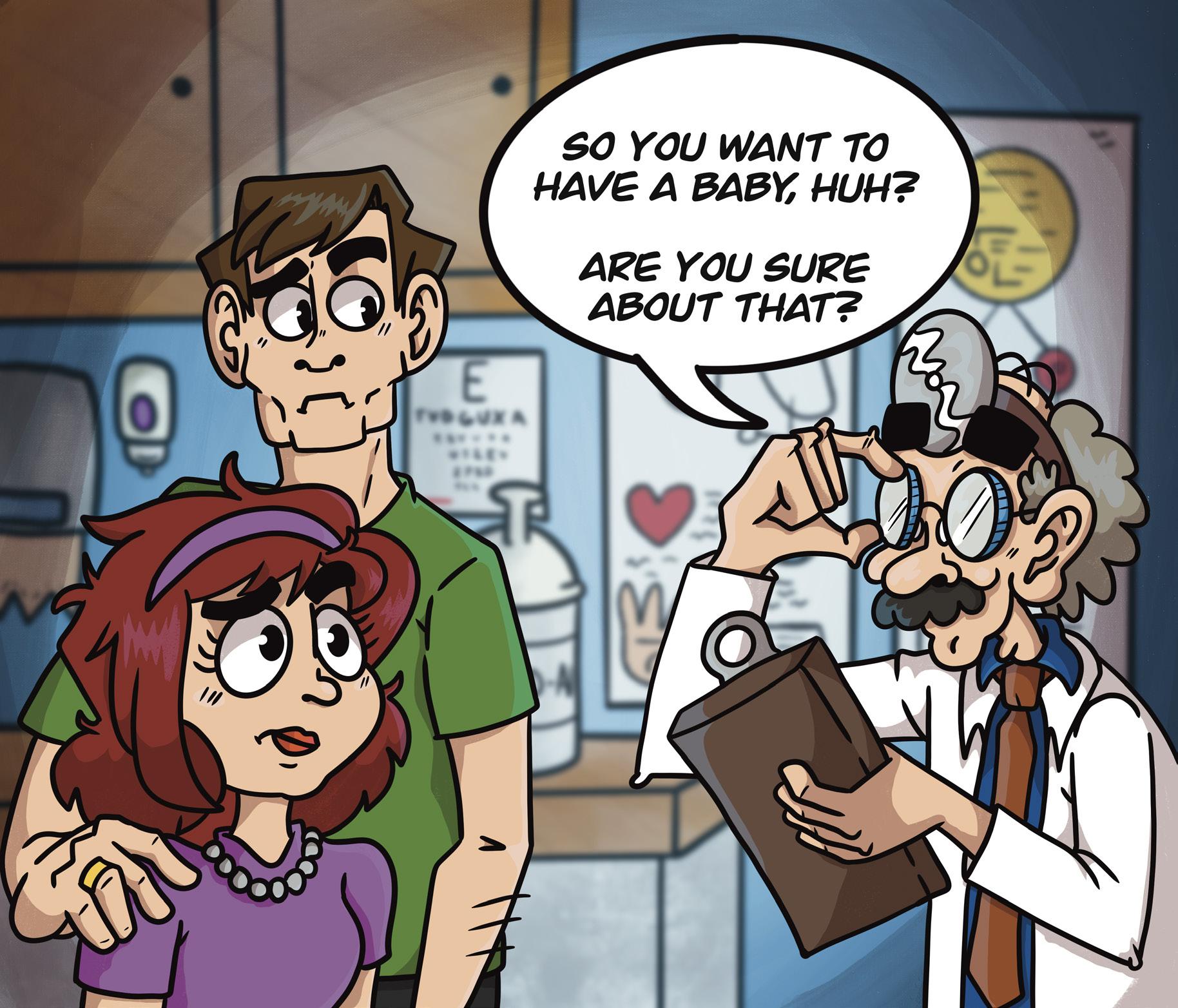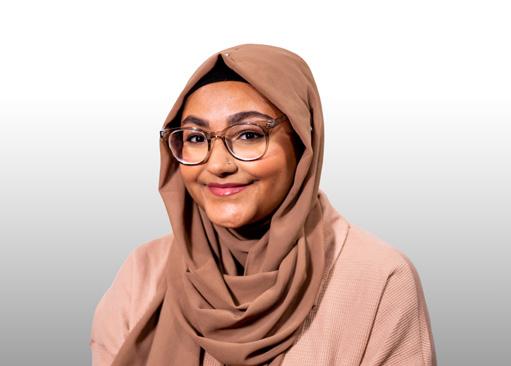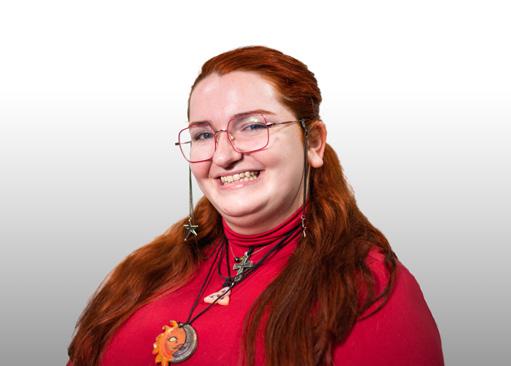
7 minute read
Is having children these days a smart idea?
For years, traditions have dictated that as we get older, our job is to at some point have children, but is doing so the right decision considering the current state of the world?
Many people these days don’t see having children in their personal futures. A major reason can be that the world we are living in is not only not suited for children but is often actively against them.
Being a parent means constantly worrying about the health and safety of a child. How can you guarantee a child’s security in a country where elementary schools are used as shooting ranges?
Depending on what state you live in, the prospect of being pregnant can be dangerous in its own right. Assuming you make it through that, the basics of trying to keep a child alive have grown even more complicated due to the rise of gun violence in the U.S..
For those on the fence, the safety reason alone can keep them on the no-go side. But for those who have grown up dreaming of becoming parents, the worries move past physical safety. For Generation Z and millennials, life has not been easy from an economic standpoint. These generations experienced two major recessions, while also dealing with traumas from political events and, of course, COVID-19.
Witnessing major political events can be traumatizing for anyone, but for a young adult, they can have a lasting mental impact.
These issues don’t just reflect the present. They represent a picture of the future that prospective parents would throw their kids into.
Previous generations made a point of sucking all the good from the world and leaving the youngsters with the scraps. So it’s not hard to see why young people wouldn’t want to put the same pressures on the next generation.
Seeing and living through these issues has meant many people are now “waiting for the right time” — the right time being when inflation isn’t making basic grocery shopping a game of “What do I need more?” Or when the stress of paying back hundreds of thousands in student loan debt isn’t creeping up every waking moment.
Even veteran parents want to lock their kids in a box for fear of what lies ahead.
Unfortunately, that’s not an option. Parents have to choose between scarring their kids for life by telling them the true reality of the world or risking the dangers if they continue to live in ignorance.
For previous generations, hiding the world’s wicked ways was a lot simpler, mostly because the issues at hand didn’t literally exist in their hands. Technology may be a necessity but it can also be dangerous if not handled properly. Most adults grew up with either none or very minimal amounts of technology and social media use. However, for younger generations, social media is something that many have before they can even read. It is so common to see children with their own phones, but how does free reigning access to the internet and other people’s opinions really affect them?
While knowing how to navigate technology is an important skill to have, it comes with the risks of cyberbullying, access to inappropriate websites and online predators. Given the facts, it’s not unreasonable to see why so many people are not having children of their own. Some people have found comfort in the idea of adoption, but with as many problems that people face perhaps, some of the worst can be found in the foster care or adoption system.
Seeing an overgrown and underfunded system such as foster care or adoption seems to be the one beacon of light for those who still want a family. The kids in the system are not only more susceptible to world issues due to their unstable environment, but many are navigating these issues completely alone.
The truth is, “traditional family values” are changing. The next generation of parents is more concerned about their circumstances and ethically raising children than they are about just continuing the family name.
Any concept of time for me has fled in the aftermath of the COVID lockdown and my entrance into the real adult world.
I keep almost being late to class. Now for most, this isn’t an important issue because “almost” is in there, but I hate it. I’ve always prided myself to always be there when I’m needed, be it events or just randomly meeting people. But lately, it hasn’t felt like that. It now feels like I’m constantly playing catchup just to meet the present.
The era of lockdown took something from all of us. For me, it was my ability to perceive time. Now, I’m not talking about knowing the day on an analytical level, even though during the worst of the pandemic it felt like that. Instead sometimes it feels like I can’t accurately keep track of what happens in a day when there’s just so much both personally and on the news.
I lost the years when I was supposed to be starting to make it as an adult, and I’m sure this new inability to track time correctly is my brain trying to make up for those lost opportunities. When someone asks me how old I am, I have to hesitate now because I’ll want to say what my age was during the pandemic.
When I look at a calendar, it’s like it doesn’t fully settle that we are in the latter half of 2022. It feels like just yesterday, it was 2019 and I was hearing the echoes of a virus without truly comprehending what it meant. But it’s not 2019. It’s three years later. For a full year, I was shut inside and had pretty much nothing to help me keep track of the days and months that had passed me by because I was too afraid to go out and risk infection.

So much happened in that COVID year with no way to connect it with the time that passed. It was like swimming in an ocean looking for any life raft or buoy to hang onto, but instead you get another wave that pulls you under. When we were allowed to come out and start experiencing the world again, I was still counting the COVID cases on my phone rather than the hours I was spending in classes or at my new job. I measured the day by the graph provided by The New York Times each morning and didn’t bother looking at the date.
Somehow, even though I work in a job I love, meet new people and have fun every day, I still can’t quite keep track of how much has happened in such a short amount of time. I will discuss something that supposedly happened a year ago, then realize it was actually just the month before.
It feels like there’s a world changing event every week, yet I still have to remember what someone said to me 10 minutes ago? It’s impossible. My brain is overloaded every day, even after a year of being out and about.
What worries me is how I don’t know if this will ever change. It’s been a year, but I’m still almost late, and I keep feeling like every day is longer than it actually is. Will I constantly be checking my charts, clocks and calendars instead of living in the moment?
Will I ever be able to see time not as an everpresent force but an opportunity?
Slicked-back hair, minimal makeup and dainty gold jewelry are the trademark of a 21st -century “it girl”, at least they are now.
For years, women of color have faced public persecution for the fashion and beauty trends that have now entered mass media. But why is it that when Black girls wear big hoops and clear lip gloss it’s seen as ghetto but when white models or influencers do the same it’s chic?
The same can be said for South Asian beauty standards. For many Desi girls, the ritual of wearing gold jewelry and getting their hair oiled has been passed down for generations. But many have given up their traditions after being scarred by the ridicule they faced because theyof i for did not fitting the quintessential American beauty standards. and the ridicule they faced because of it.
These days, it’s impossible to open your Instagram feed as a person of color without seeing some form of your culture being taken over and watered down with no credit to be given. And unfortunately, beauty standards and trends are only the beginning.
Many Hispanic people were outraged when TikTtok trends emerged of people making “spa water” or “corn on a stick.” News flash, agqua frescas and elote have been around forever and they don’t need to be redone.
The issue here is not with people wanting to partake in food or beauty standards from other cultures. It should be noted, that there is a difference between appreciating a part of someone’s culture and appropriating it. Completely changing the name for something and passing it off as a new idea is not cultural appreciation.


What makes it worse is when a person of the ethnicpeople group whose traditions are being gentrified tries to point out their displeasure and is immediately met with a medley of “it’s not a big deal, just get over it.”
If it truly wasn’t a big deal then the act wouldn’t have been done in the first place. America is known as a melting pot for a reason, there are hundreds of different cultures and traditions practiced within the country., and n No one has said that learning or experiencing them is a bad thing.
For people of color, traditions such as the way they dress and the food they make represent more than just beauty and sustenance. They represent ancestral pain and tradition that generations of people have fought tooth and nail to keep protected in a foreign land.
We live in a world where the knowledge of anything and everything can be attained with just a few clicks. Cultural sensitivity and awareness should not be this much of an issue in the 21st century. As a society, it is our job to not only be well informed before blasting something on the internet, but also be willing to sit with the discomfort of making a mistake and rectifying it.
Beauty and food are two of the best ways to bring people together, especially on the internet. We just need to remain mindful about where our ideas are coming from and who should be receiving the credit for them.



